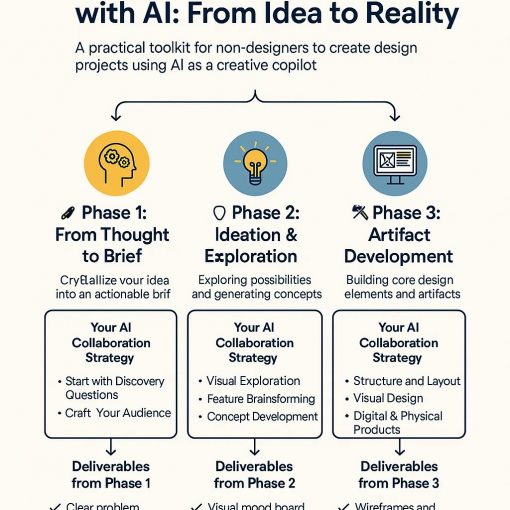Preamble
Since the late nineteenth century, Western policy-makers, business leaders and social thinkers have borrowed heavily from Charles Darwin’s theory of evolution especially the idea of “survival of the fittest.” This article explores how that Darwinian lens has shaped modern markets, politics and technology. Using a PESTLE (Political, Economic, Social, Technological, Legal, Environmental) framework, it weighs the powerful upsides of competition-driven progress against the spiralling costs: widening inequality, environmental stress, social fragmentation and geopolitical tension. The goal is not to discard competition, but to design safeguards and cooperative mechanisms that preserve innovation while containing the damage. This was written to encourage debate rather than my personal beliefs or solutioning. See Appendices D for a critique of this Article
Substack version Darwinian Philosophy in Western Politics and Economics: Part 1
The Western Adoption of Darwinian Frameworks
Core Concepts
- Competitive Selection Markets and political systems as arenas of natural selection where only the “strongest” survive.
- Adaptive Advantage Success linked to superior adaptation—efficiency, innovation or resource control.
- Natural Hierarchy Inequality accepted as an organic outcome rather than a policy choice.
- Progressive Evolution Assumption that continuous competition automatically yields societal improvement.
Positive Outcomes of Darwinian Application
Economic Innovation and Growth
- Break-through technologies and productivity gains
- Efficient resource allocation via price signals
- Entrepreneurial cultures that reward risk-taking
- “Creative destruction” that retires obsolete models
Political Accountability
- Electoral competition pressures leaders to perform
- Multi-party systems diffuse power
- Merit-based advancement within many institutions
International Development
- Competitive pressure accelerates emerging-market growth
- Knowledge spill-overs and technology diffusion
- Rising standards as nations vie for investment
Negative Outcomes of Darwinian Application
Economic Inequality and Exploitation
- Extreme wealth concentration rationalised as “natural”
- Labour and resources squeezed for short-term gain
- Environmental costs externalised
Political Polarisation and Extremism
- Zero-sum campaigning replaces cooperative policy-making
- “Strong-man” narratives legitimise authoritarian drift
- Social cohesion erodes in favour of hyper-individualism
International Conflict
- Imperial expansion framed as civilisational competition
- Trade wars, arms races and a decline in multilateral trust
- Collective challenges left under-funded and under-co-ordinated
PESTLE Analysis: Darwinian Frameworks in Western Systems

Integrated Impact on People, Processes and Technology
People
- Pros: agency, resilience, pathways for talent
- Cons: chronic stress, social isolation, inequality normalisation
Organisational & Governance Processes
- Pros: continuous improvement, agile response, transparency pressure
- Cons: short-term metrics, collaboration deficit, policy instability
Technology
- Pros: faster innovation cycles, democratisation of tools
- Cons: proprietary silos, planned obsolescence, security gaps
Conclusion
Darwinian competition has unleashed extraordinary ingenuity and growth, yet it now collides with twenty-first-century realities: planetary boundaries, digital monopolies and polarised societies. Western economies must evolve once more—this time toward blended models that reward innovation and protect the public good. The task is urgent but achievable: design incentives that keep markets dynamic while ensuring that prosperity, sustainability and social cohesion advance together.
Darwinian Philosophy, Political Economy, Western Economics, PESTLE Analysis, Inequality & Equity, Innovation & Competition, Sustainability Strategy, ESG & Governance, Business Design, Future of Capitalism
Appendix A | Action Plan to Mitigate Negative Externalities

Appendix B | Stakeholder Communication Matrix

Appendix C | Risk Register (Selected)

Appendix D : Critique
This article attempts to analyze how Darwinian concepts have influenced Western politics and economics, but it suffers from several significant analytical and methodological flaws:
Conceptual Issues
Oversimplified Darwin Application: The piece conflates “survival of the fittest” with economic and political competition without acknowledging that Darwin’s actual theory emphasizes adaptation to environment, not dominance through strength. The author treats Social Darwinism as if it were directly derived from Darwin’s work, when it’s actually a separate ideological framework that misappropriated evolutionary concepts.
Ahistorical Framework: The analysis lacks historical context about when and how these ideas actually entered Western thought. Social Darwinism peaked in the late 19th/early 20th centuries, but the article presents it as a continuous influence without examining how its application has evolved or been challenged over time.
Analytical Weaknesses
False Dichotomies: The piece presents competition and cooperation as opposing forces, when evolutionary biology shows they often work together. Many successful systems blend competitive and cooperative elements rather than being purely Darwinian.
Cherry-Picked Evidence: The positive and negative outcomes listed are selectively chosen to support the thesis. Many of the “negative outcomes” (like inequality) have complex causes beyond competitive frameworks, while some benefits of competition (like consumer choice and innovation diffusion) are understated.
Shallow PESTLE Application: The PESTLE framework feels tacked on rather than integrated. The analysis lacks depth in each category and doesn’t demonstrate how political, economic, social, technological, legal, and environmental factors actually interact within a “Darwinian” system.
Methodological Problems
Definitional Vagueness: The article never clearly defines what constitutes “Darwinian philosophy” in practical policy terms. This makes it impossible to evaluate the claims or distinguish between legitimate market mechanisms and harmful Social Darwinist ideology.
Missing Alternatives: While calling for “blended models,” the piece doesn’t examine existing examples of successful mixed systems or explain why current regulatory frameworks are insufficient.
Lack of Empirical Support: The claims about causation between Darwinian thinking and specific outcomes aren’t supported with data or comparative analysis.
Writing and Structure
The article reads more like a business consulting framework than serious political economy analysis. The language is often buzzword-heavy (“creative destruction,” “adaptive advantage”) without substantive explanation. The promised appendices might contain more rigorous analysis, but their absence makes the main text feel incomplete.
The piece would be stronger if it focused on specific policy areas where competitive frameworks have succeeded or failed, provided historical context for how these ideas evolved, and offered concrete examples of the “blended models” it advocates.



